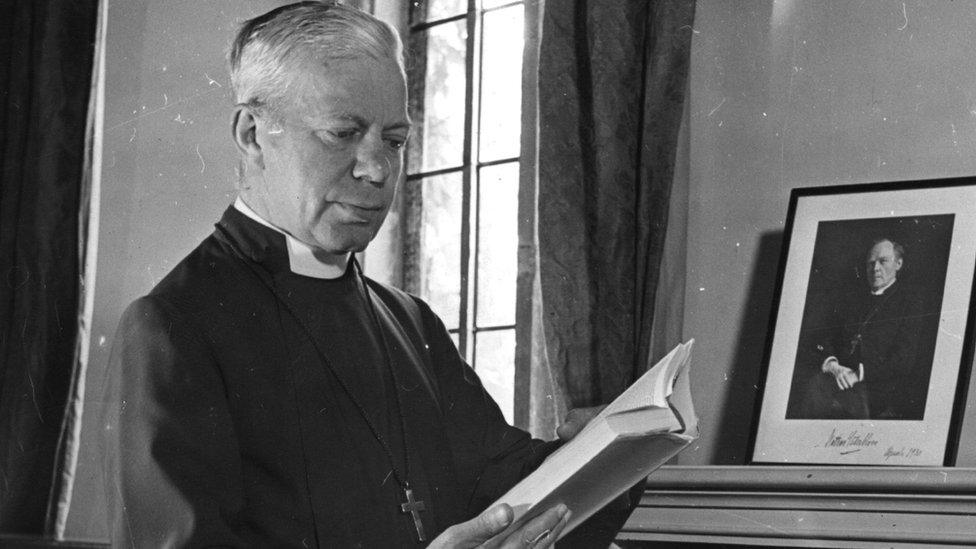Church of England's 2010 abuse inquiry was 'flawed' and 'failed'
- Published
Sir Roger Singleton carried out a review on how abuse allegations were reported
The Church of England "botched" its investigation into alleged cases of abuse, a report's author has said.
Sir Roger Singleton, who reviewed the Church's "flawed" 2010 investigation, said it "failed to give a complete picture" of the abuse.
But Sir Roger, whose report is due out next month, said he found "no evidence of a planned deliberate attempt to mislead".
The Church has outlined four steps for improvement.
They include the creation of an independently-chaired panel featuring survivors which will look at options to redress past cases, an independent ombudsman to review how complaints are handled and a strengthening of the clergy recruitment process.
There will also be "closer working with the Catholic Church to support survivors of sexual abuse".
Sir Roger, who was asked by the Church to review the 2010 Past Cases Review (PCR), told BBC Radio 4 Today the Church's investigators "narrowed down" the definition of who had been an abuser by limiting it "to just new cases and cases where the Church took formal action".
He also said a survey the Church carried out "wasn't completely comprehensive", for example it didn't include some cathedrals or employees working with children in some parishes.
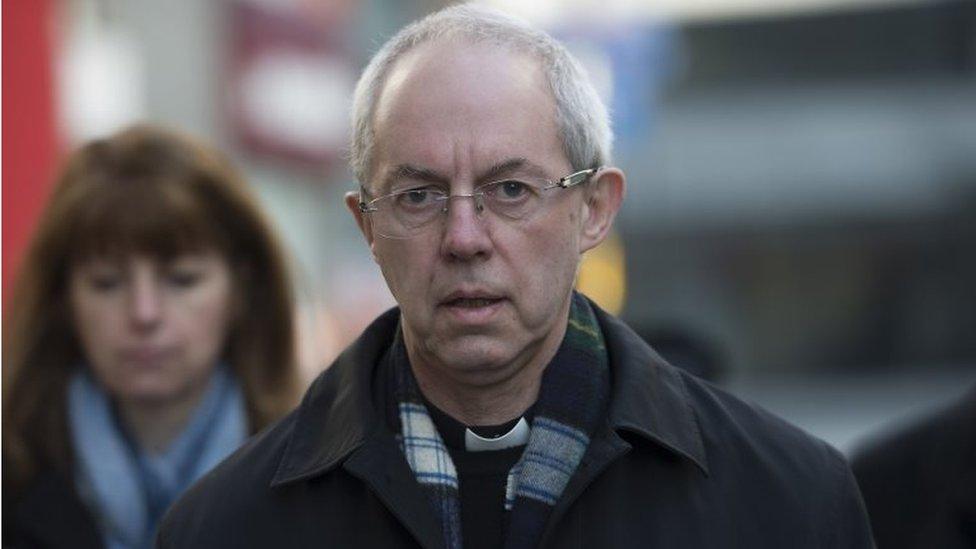
Archbishop of Canterbury Justin Welby has said the church's failures are "deeply shaming"
The BBC has learned abuse allegations involving dead and retired clergy were also left out of the PCR which looked at more than 40,000 files.
The review concluded that just 13 cases of alleged child sexual abuse needed formal action.
Sir Roger, the former head of Barnardo's said the church's limitations "had the impact" of reducing the number of cases of abuse "from probably near 100 to just two".
He also said it seems "extraordinary" now that the Church investigators did not meet with more victims and survivors but "the importance of listening" to them was "less understood" in 2010 than it is now.
Sir Roger said the PCR had been "well-intentioned" but the Church needs to "complete the incomplete job" and review all the files.
'Deeply shaming'
He also said the Church "emphasised the positive aspects" of the PCR in an attempt to "protect the interests of the Church".
The Church must also put as much emphasis on preventing abuse as on reporting abuse allegations, he said.
The Archbishop of Canterbury Justin Welby said the Church's failures were "deeply shaming".
Survivors have accused the Church of a "wholly inadequate" response.
Since March the Independent Inquiry into Child Sexual Abuse (IICSA) has heard how the Church of England handled allegations of sexual misconduct stretching back to the 1950s.
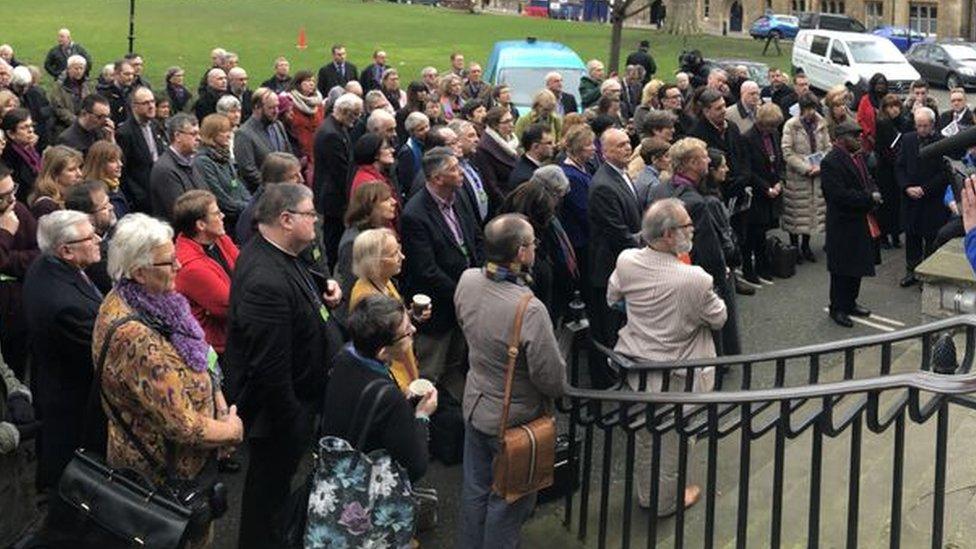
The Archbishops of York and Canterbury joined supporters of abuse victims in a silent protest
The BBC has seen emails showing discussions and disagreements about which cases to include in the PCR.
They show confusion about the criteria of who to include. Eventually the PCR excluded those who had died, retired, or who were deemed no longer to pose a risk.
Other excluded cases related to a cleric who was allegedly addicted to pornography and another said to have had an "obsessional interest in satanic ritual abuse".
Sexual offences which had been decriminalised were also left out, leaving the possibility that cases involving abuse of boys of the age of 16 or 17 went unrecorded.
Allegations of grooming behaviour were also excluded. One diocesan bishop did not engage with the review at all and many files containing allegations remained unopened in filing cabinets.
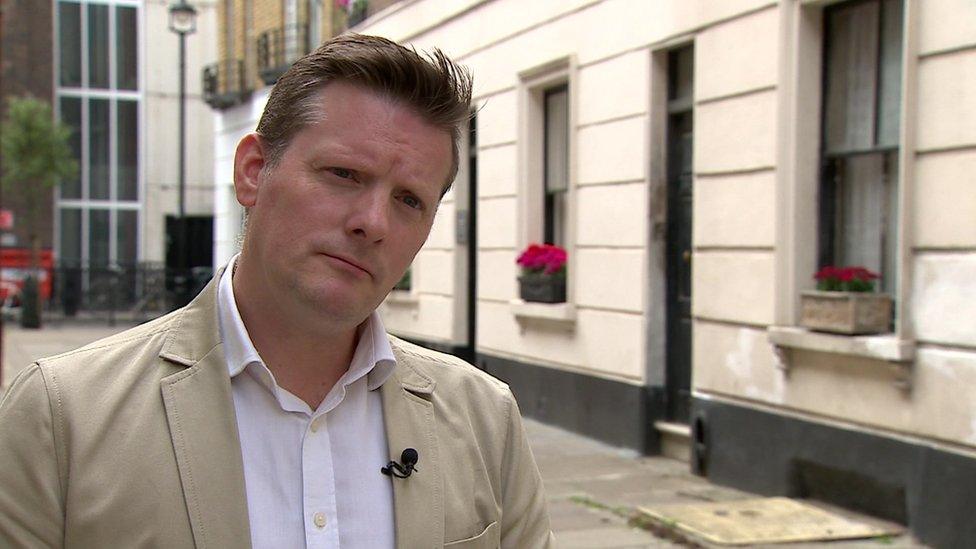
Justin Humphries said the Church may have failed to identify some abusers
Justin Humphries of the Churches' Child Protection Advisory Service says the review may have failed to identify some abusers.
"I can't say for sure but I think it would be fair to say that yes, that is a distinct possibility."
Documents also suggest the Church hierarchy worked behind the scenes to limit damage to the reputation of the then-Archbishop of Canterbury, Rowan Williams.
In an email exchange in October 2010 - during the Chichester sex abuse scandal - a press adviser to Dr Williams said "the real danger here is that these stories are used to suggest that the CofE is as bad as Rome, both in abuse and cover-up" and "the aim must be to distance the current ABC (Archbishop of Canterbury) from it as much as poss".
Dr Williams told the inquiry he had not previously seen the email.
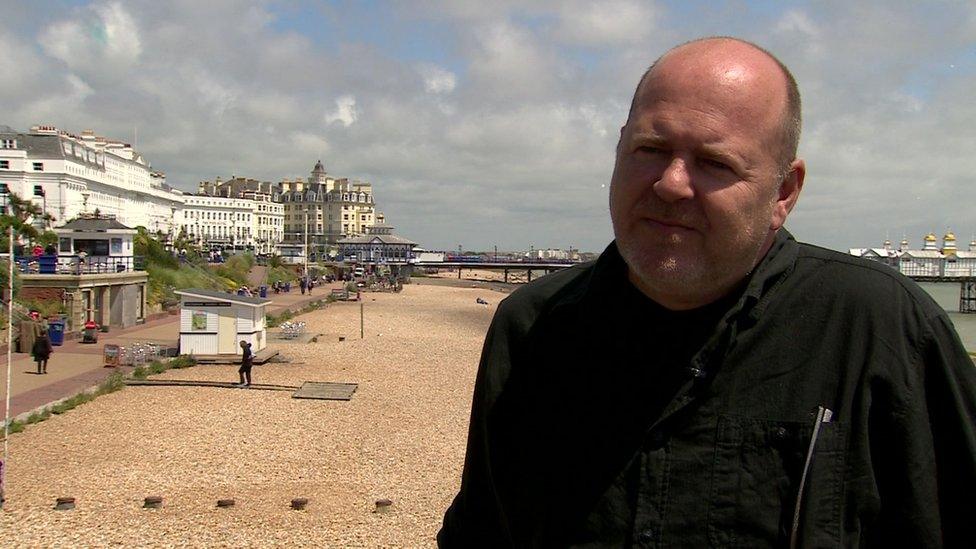
Phil Johnson said the Church of England see 'survivors as the problem'
In most cases survivors were not asked to give evidence to the PCR and there has been criticism of the Church for failing to fully involve them.
Phil Johnson, who was abused by a clergyman in the Chichester Diocese, says the Church's response to survivors has been "wholly inadequate… there's been a sense of paralysis almost on the part of the Church" and "of seeing the survivors as the problem".
The Church of England said it will support the recommendations in next month's report by Sir Roger and has also commissioned a survey from the Social Care Institute for Excellence, asking for the views of survivors.
- Published10 February 2018
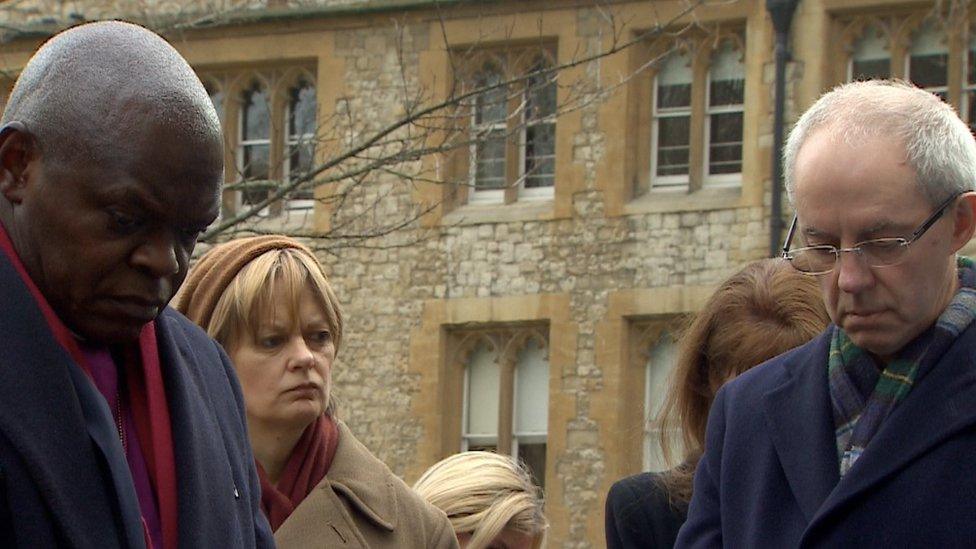
- Published9 October 2017
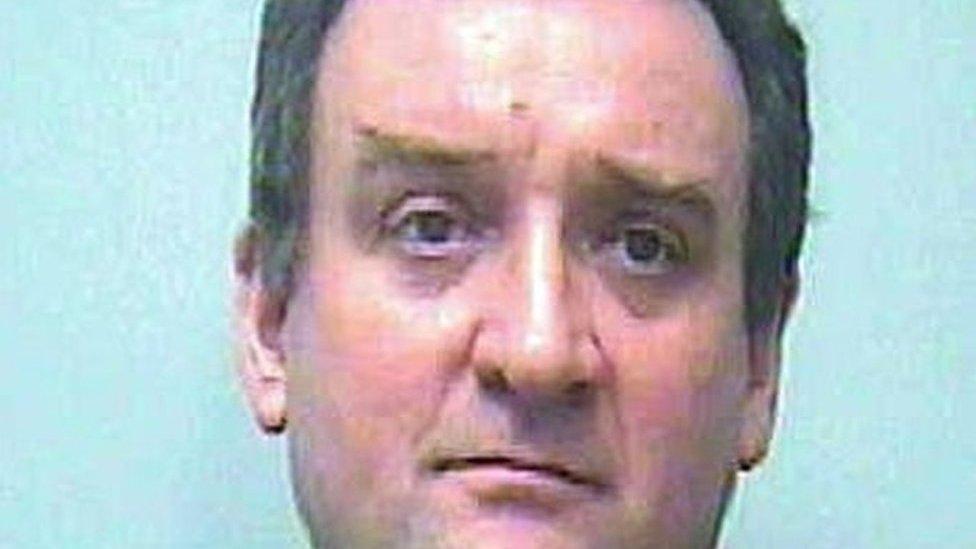
- Published15 December 2017
